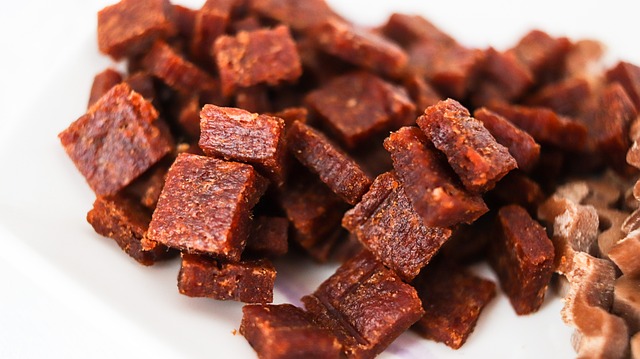A well-balanced diet is essential for maintaining your pet’s overall health and wellbeing. However, with the numerous options available in the market, it can be overwhelming to choose the right food for your furry friend. In this article, we will provide you with some basic pet nutrition tips to ensure that your pet is getting the necessary nutrients for optimal health.
First and foremost, it’s essential to understand that every pet is different, and what works for one pet may not work for another. The nutritional needs of pets vary depending on factors such as age, breed, size, and health conditions. Therefore, it’s crucial to consult with your veterinarian before making any changes to your pet’s diet.
Here are some basic pet nutrition tips that you can follow:
1. Choose a High-Quality Food
The quality of food is paramount when it comes to your pet’s nutrition. Look for foods that are made with high-quality protein sources such as chicken, salmon, or lamb, and whole grains like brown rice, oats, or barley. Avoid foods that contain fillers, by-products, and artificial preservatives.
2. Consider Your Pet’s Life Stage
Pets have different nutritional needs at various stages of their life. For example, puppies and kittens require more protein and calories than adult dogs and cats. Senior pets, on the other hand, may require more joint support and arthritis relief. Make sure to choose a food that is formulated for your pet’s life stage.
3. Watch Your Pet’s Weight
Obesity is a common health issue in pets, particularly dogs. Monitor your pet’s weight closely and adjust their diet accordingly. A good rule of thumb is to feed your pet 10-15% less than their ideal weight to maintain a healthy body condition.
4. Stay Hydrated
Water is essential for your pet’s hydration and overall health. Ensure that your pet always has access to fresh, clean water. You can also add water-rich foods such as canned food or raw meat to their diet to increase their hydration levels.
5. Limit Treats
Treats can be a great way to reward your pet, but they should be limited. Choose low-calorie treats that are rich in nutrients, and avoid giving them too frequently. A good rule of thumb is to limit treats to 10% of your pet’s daily calorie intake.
6. Avoid Common Allergens
Some pets may have allergies or sensitivities to certain ingredients in their food. If you notice any signs of an allergy, such as itching, scratching, or digestive issues, consult with your veterinarian and switch to a new food that is hypoallergenic.
7. Be Mindful of Food Allergens
Some pets may be allergic to certain ingredients in their food. Common allergens include beef, dairy, eggs, wheat, and soy. If you notice any signs of an allergy, consult with your veterinarian and switch to a new food that is free from common allergens.
8. Consider Raw or Cooked Food
Some pet owners swear by raw or cooked food for their pets. While these options can be nutritious, they also come with risks such as bacterial contamination and digestive issues. Consult with your veterinarian before making any changes to your pet’s diet.
9. Provide a Balanced Diet
A balanced diet is essential for maintaining your pet’s overall health. Look for foods that contain a mix of protein, fat, carbohydrates, vitamins, and minerals. Avoid foods that are high in fillers, by-products, and artificial preservatives.
10. Consult with Your Veterinarian
Finally, always consult with your veterinarian before making any changes to your pet’s diet. They can help you determine the best food for your pet based on their individual needs and health conditions.
By following these basic pet nutrition tips, you can ensure that your pet is getting the necessary nutrients for optimal health. Remember, every pet is different, so it’s essential to work with your veterinarian to find the right food for your furry friend.
In conclusion, a well-balanced diet is crucial for maintaining your pet’s overall health and wellbeing. By following these basic pet nutrition tips, you can ensure that your pet is getting the necessary nutrients for optimal health. Don’t forget to consult with your veterinarian before making any changes to your pet’s diet, as they can help you determine the best food for your pet based on their individual needs and health conditions.
Tags: Pet Nutrition Tips, Basic Pet Care, Healthy Pets, Nutritious Food, Pet Health Advice
